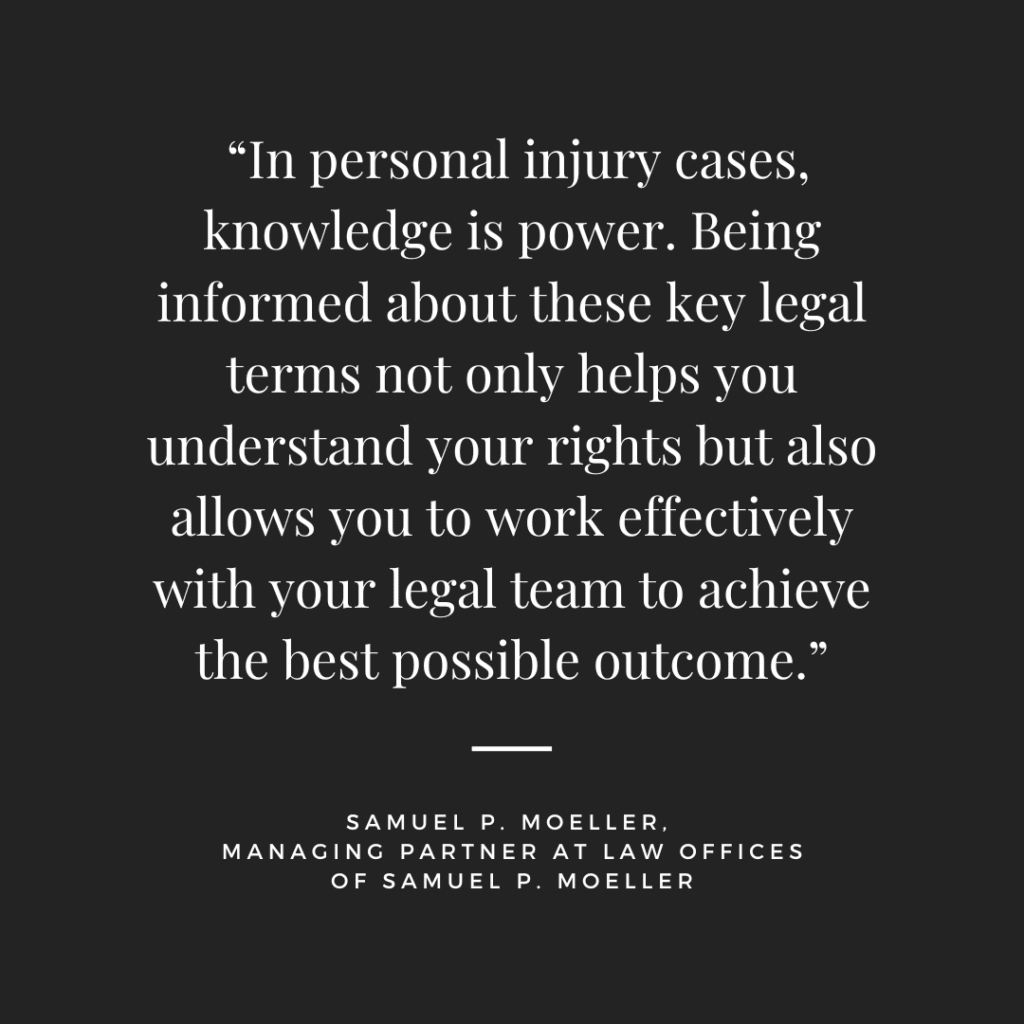Personal injury cases encompass a wide range of legal matters, from car accidents to slip and fall incidents. Understanding the terminology associated with personal injury law is crucial if you find yourself involved in such a situation. This article will focus on the top 10 personal injury legal terms that you should be familiar with to navigate your personal injury case effectively.
1. Negligence:
Negligence is at the core of most personal injury cases. It refers to the failure of an individual or entity to exercise reasonable care, resulting in harm to another person. Proving negligence is essential in personal injury claims, as it establishes fault.
2. Damages:
Damages refer to the losses suffered by the injured party as a result of the accident or incident. These can be economic (e.g., medical bills, lost wages) or non-economic (e.g., pain and suffering). Understanding the types of damages you may be entitled to is crucial in assessing the potential compensation you could receive.
3. Liability:
Liability determines who is legally responsible for the accident or injury. It can be shared among multiple parties or fall solely on one individual or entity. Identifying and proving liability is a crucial step in personal injury cases.
4. Statute of Limitations:
The statute of limitations is the time frame within which you must file a personal injury lawsuit. Missing this deadline can result in the loss of your right to seek compensation. The time limit varies by state and the type of case, so it’s essential to be aware of your jurisdiction’s rules.
5. Settlement:
A settlement is an agreement between the injured party and the at-fault party or their insurance company, where compensation is paid to resolve the claim without going to court. Settlements can be a faster and less adversarial way to resolve a personal injury case.
6. Tort:
A tort is a civil wrong or wrongful act that causes harm to another person. Personal injury cases often fall under the category of tort law, where the injured party seeks compensation for the harm they suffered.
7. Comparative Negligence:
In cases where both parties share some degree of fault, comparative negligence comes into play. This legal doctrine allows for the allocation of responsibility between the parties involved, affecting the final compensation amount. Understanding how comparative negligence works is vital if you might be partially at fault for the incident.
8. Pre-existing Condition:
A pre-existing condition refers to a medical condition or injury that existed before the accident. Personal injury claims can become complicated when pre-existing conditions are involved, as it can be challenging to determine how much of the injury is directly attributable to the incident.
9. Liability Insurance:
Liability insurance is coverage that individuals or entities purchase to protect themselves from personal injury claims. It typically covers the at-fault party’s legal obligations to compensate the injured party for their losses
10. Deposition:
A deposition is a sworn, out-of-court testimony given by a party or witness during the discovery phase of a personal injury lawsuit. Depositions are essential for collecting evidence and assessing the strength of each party’s case.
Navigating a personal injury case can be overwhelming, especially if you’re unfamiliar with the legal terminology. However, understanding these top 10 personal injury legal terms can provide you with a solid foundation to advocate for your rights and seek the compensation you deserve. If you find yourself involved in a personal injury claim, it’s advisable to consult with a qualified attorney who can guide you through the process and help you make informed decisions.

[forminator_form id=”169″]